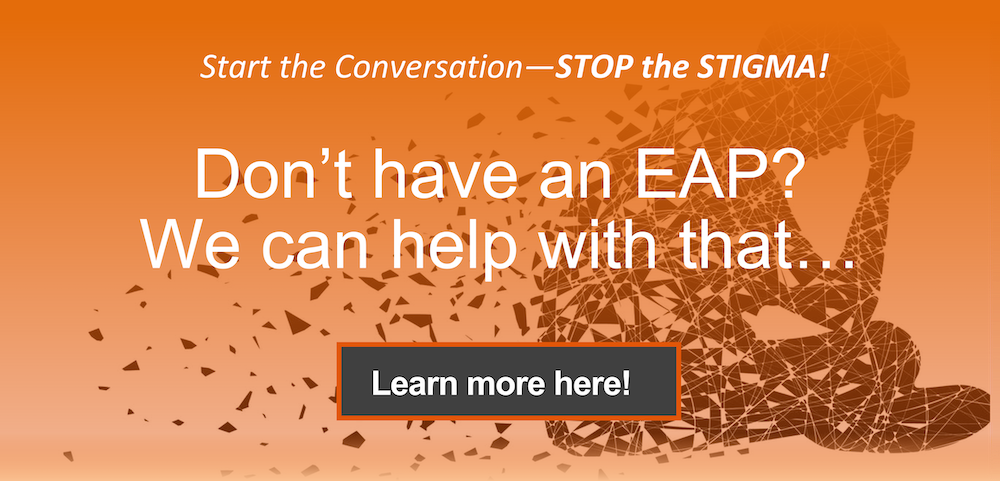Behavioral health plays a vital role in shaping our emotional, physical, and social well-being. However, widespread misconceptions often prevent individuals from understanding its importance or seeking help when needed. Addressing these myths is crucial to fostering a more informed and supportive approach to behavioral health.
What is Behavioral Health?
Behavioral health encompasses more than just mental health. It refers to how our behaviors and habits affect our physical, emotional, and social well-being. This includes everything from managing stress and coping with emotions to making lifestyle choices that promote health.
Behavioral health challenges are common:
- According to the Substance Abuse and Mental Health Services Administration (SAMHSA), nearly 59 million adults in the U.S. experienced a mental illness in 2023, underscoring the significance of behavioral health.
- According to the National Institute of Mental Health (NIMH), nearly 19.1% of U.S. adults had an anxiety disorder in the past year.
- A World Health Organization (WHO) study found that depression affects 280 million people globally.
Top 10 Behavioral Health Myths (Busted)
Here are ten common beliefs about behavioral health that are untrue or misleading.
Myth #1 Behavioral health issues are rare
Truth: Behavioral health challenges are far more common than many realize. According to the National Alliance on Mental Illness (NAMI), more than one in five adults in the U.S. experience a mental health condition each year. Additionally, the World Health Organization (WHO) reports that depression affects more than 264 million people globally, underscoring the widespread nature of behavioral health issues.
Myth #2 Therapy is only for people with severe issues
Truth: Therapy isn’t just for those dealing with significant crises. It’s a resource for anyone seeking support, personal growth, or strategies to handle life’s challenges. Whether someone is navigating relationship dynamics, career stress, or general self-improvement, therapy can provide valuable tools and insights.
Myth #3 medication is a crutch or a sign of failure
Truth: Taking medication for behavioral health issues is no different than taking medicine for physical conditions like high blood pressure or diabetes. As Psychology Today notes, medication is a critical part of the treatment plan for many individuals, helping to manage symptoms and improve quality of life.
Myth #4 mental health problems are a sign of weakness
Truth: Behavioral health conditions are medical issues, not personal shortcomings. Factors like genetics, environment, and biology play significant roles. Seeking help requires strength and courage, not weakness, and it’s a proactive step toward recovery and resilience.
Myth #5 You 'can snap out of' behavior health problems with willpower
Truth: Behavioral health challenges are complex and often require professional support, whether through therapy, medication, or a combination of treatments. Dismissing them as something people can “get over” trivializes their experiences and undermines the importance of effective interventions.
Myth #6 People with behavioral health issues are dangerous
Truth: The misconception that individuals with behavioral health problems are violent is not only false but harmful. Research from the American Psychological Association (APA) indicates that the vast majority of people with mental health conditions are not violent and are more likely to be victims rather than perpetrators of violence. This myth perpetuates stigma and prevents open conversations about mental health.
Myth #7 Children don't experience behavioral health problems
Truth: Behavioral health issues can and do affect children. Conditions like anxiety, depression, and ADHD are not limited to adults. Early recognition and intervention can make a significant difference in a child’s development and overall well-being.
Myth #8 talking about mental health makes things worse
Truth: Open discussions about behavioral health reduce stigma and encourage people to seek help. When we talk openly, we create environments where individuals feel supported and understood, making it easier for them to access the resources they need.
Myth #9 once diagnosed,you'll always have the problem
Truth: Many people recover fully from behavioral health conditions or learn to manage them effectively. With the right combination of treatment, support, and lifestyle changes, individuals can lead fulfilling lives.
Myth #10 self-care is selfish or unimportant
Truth: Self-care is a cornerstone of maintaining good behavioral health. Taking time to rest, recharge, and engage in activities that bring joy and relaxation is not selfish—it’s essential for overall well-being.
Why Debunking Myths Matters
The myths surrounding behavioral health do more than just spread misinformation — they create barriers. When people believe these misconceptions, they may hesitate to seek help or feel ashamed of their struggles. Breaking down these myths is crucial for fostering a society that values mental and emotional well-being.
For instance, the myth that therapy is only for severe issues might prevent someone from addressing early signs of stress or anxiety, which can escalate without intervention.
Similarly, the misconception that children don’t face behavioral health problems can delay necessary support. The Centers for Disease Control and Prevention (CDC) reports that 1 in 7 children aged 3-17 in the U.S. have a diagnosed mental, behavioral, or developmental disorder. Early recognition and intervention are critical for helping children thrive.
Accurate information empowers individuals to take proactive steps in managing their health. It also encourages empathy and understanding, reducing stigma and creating supportive environments for everyone. By addressing these misconceptions, we can help pave the way for more open conversations and better access to resources.
Getting Help with Behavioral Issues
Seeking help for behavioral health issues is a proactive step toward recovery and well-being. Whether through professional services or community resources, there are many pathways to support.
- Talk to a trusted professional. Seek guidance from a licensed therapist, counselor, or psychologist who can provide personalized support and treatment plans.
- Use employee assistance programs (EAPs). Many workplaces offer employee assistance programs that provide free or low-cost counseling and support services for employees. These programs are confidential and can be a great starting point for addressing behavioral health concerns.
- Contact your primary care provider. Primary care physicians can help identify behavioral health issues and connect you with specialists or resources tailored to your needs.
- Explore community resources. Local organizations and nonprofits often offer behavioral health services, including support groups, workshops, and low-cost counseling. Contact your city’s health department for information.
- Leverage online resources. Online platforms, like teletherapy services or behavioral health apps, can offer convenient ways to access help. Websites such as Psychology Today or SAMHSA’s Find Treatment Services Locator can help you find professionals in your area.
- Join support groups. Peer support groups, either in person or online, provide a safe space to share experiences and learn from others facing similar challenges.
- Contact hotlines for immediate help: Crisis hotlines, such as the National Suicide Prevention Lifeline (dial 988 in the U.S.), offer immediate support for those in distress or crisis.
Debunking Myths for Better Behavioral Health
Behavioral health is an integral part of overall wellness, yet it’s often misunderstood due to persistent myths. By challenging these misconceptions, we can promote a healthier, more informed perspective. If you or someone you know is struggling, remember that help is available. Seeking support is a sign of strength and a step toward a brighter, healthier future.

When you partner with Ulliance, our Life Advisor Consultants are always just a phone call away to teach ways to enhance your work/life balance and increase your happiness. The Ulliance Life Advisor Employee Assistance Program can help employees and employers come closer to a state of total well-being.
Investing in the right EAP or Wellness Program to support your employees will help them and help you. Visit https://ulliance.com/ or call 866-648-8326.
The Ulliance Employee Assistance Program can address the
following issues:
• Stress about work or job performance
• Crisis in the workplace
• Conflict resolution at work or in one’s personal life
• Marital or relationship problems
• Child or elder care concerns
• Financial worries
• Mental health problems
• Alcohol/substance abuse
• Grief
• Interpersonal conflicts
• AND MORE!
References:
12 Common Mental Health Myths Busted, Therapy Brands
https://therapybrands.com/blog/12-common-mental-health-myths-busted/
About Behavioral Health, Centers for Disease Control and Prevention (CDC)
https://www.cdc.gov/mental-health/about/about-behavioral-health.html
Mental Health By the Numbers, National Alliance on Mental Illness (NAMI)
https://www.nami.org/about-mental-illness/mental-health-by-the-numbers/
Overcoming Coming Stigmas, Barriers to Mental Health; Mayo Clinic Health System
https://www.mayoclinichealthsystem.org/hometown-health/speaking-of-health/overcoming-mental-health-care-barriers



